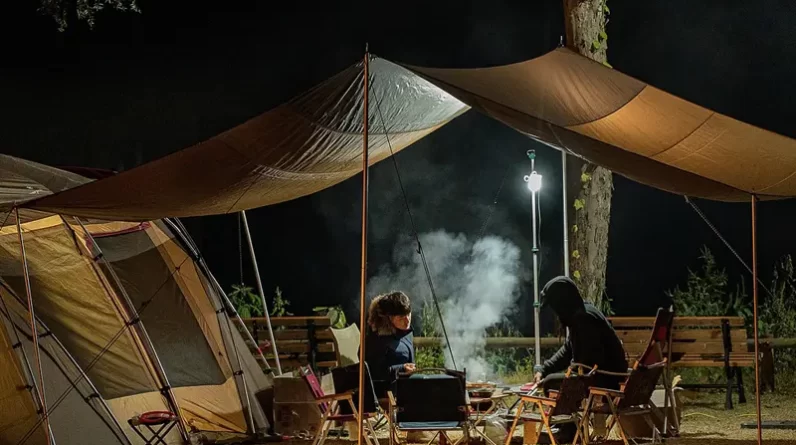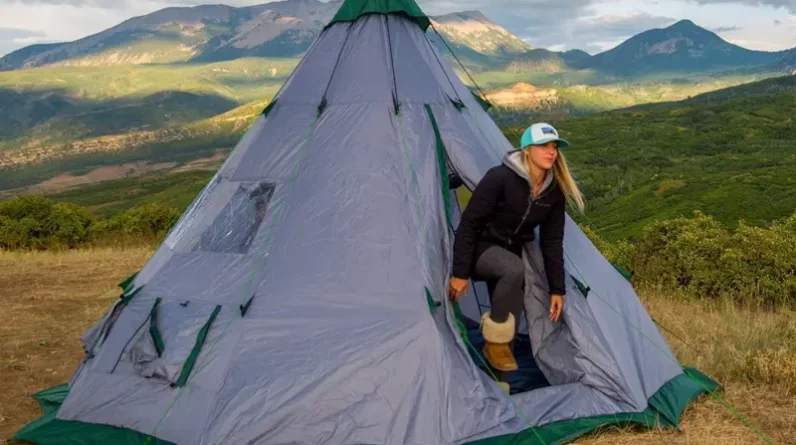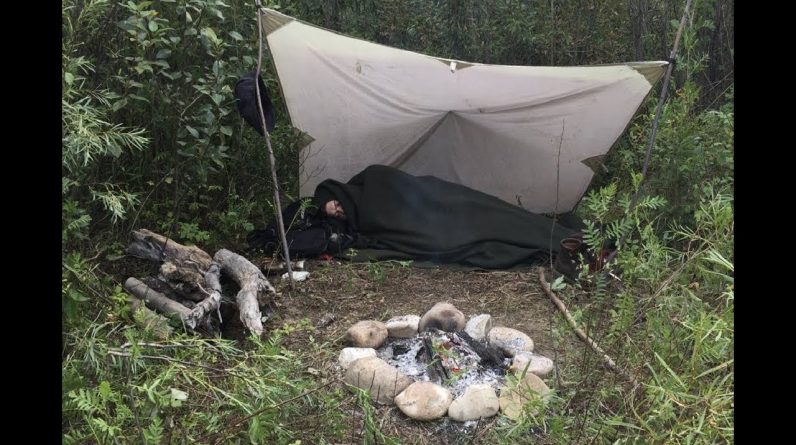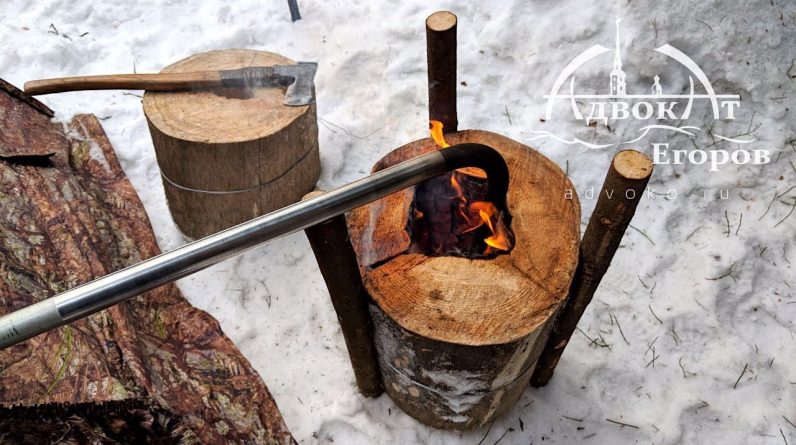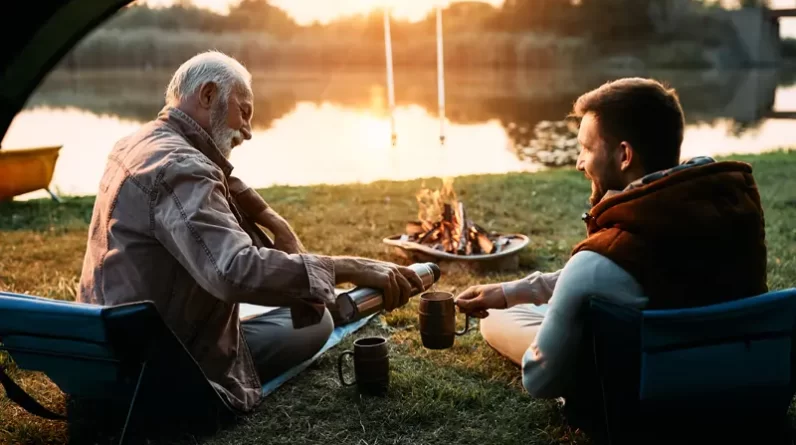
Embracing the Lightweight Camping Philosophy
Camping is an age-old tradition, a way to immerse ourselves in nature and escape the noise of modern life. But the experience can be marred by heavy, cumbersome gear. Enter the world of lightweight camping. This guide will delve into the essentials of lightweight camping gear, helping you to travel lighter, go further, and enjoy the great outdoors to the fullest.
The Lightweight Camping Gear Revolution
The shift towards lightweight camping gear is not just a trend; it’s a revolution in how we approach outdoor adventures. Reducing weight can cover more ground, reduce physical strain, and make our trips more enjoyable. This section will explore the benefits of lightweight gear and why it’s an investment worth making.
The Cornerstones of Lightweight Camping Gear
In this section, we’ll break down the critical components of lightweight camping gear:
- Tents: Your home away from home. We’ll discuss the best lightweight tents on the market, focusing on durability, ease of setup, and protection against the elements.
- Sleeping Bags and Pads: Essential for a good night’s sleep. We’ll review lightweight options that don’t compromise comfort or warmth.
- Cooking Equipment: From compact stoves to collapsible cookware, we’ll cover the essentials for preparing meals in the wilderness.
- Backpacks: The foundation of any camping trip. We’ll explore backpacks that perfectly balance weight, durability, and storage capacity.
- Clothing and Footwear: Dressing for success in the great outdoors. We’ll discuss the importance of lightweight, breathable, quick-drying clothing and footwear.
- Accessories: The little things can make a big difference. We’ll cover lightweight accessories like water filters, headlamps, and hiking poles.
The Impact of Lightweight Camping Gear on Your Outdoor Experience
Lightweight gear can transform your camping experience. In this section, we’ll discuss how reducing your load can increase mobility, reduce fatigue, and allow you to enjoy your surroundings without feeling weighed down.
Choosing Quality Lightweight Camping Gear: Material Matters
When selecting quality lightweight camping gear, the material used in the construction of the equipment plays a significant role. For instance, materials like ripstop nylon or polyester are preferred when choosing a tent due to their durability and lightweight. Similarly, down is often favored for sleeping bags for its excellent insulation-to-weight ratio. However, synthetic materials may be better for wet conditions as they retain their insulating properties even when damp.
Cookware from titanium or anodized aluminum is typically lighter and conducts heat better than traditional stainless steel. For backpacks, look for materials like Dyneema, known for its exceptional strength-to-weight ratio. Clothing should be made from quick-drying, breathable fabrics like merino wool or synthetic blends. Always remember, the goal is to find gear that is not only light but also durable and suited to your specific camping conditions.
Choosing Quality Lightweight Camping Gear: Brand Reputation and Reviews
Another crucial factor in choosing quality lightweight camping gear is the brand’s reputation and the product’s reviews. Established outdoor brands have a history of producing reliable, high-quality equipment, and their products often come with warranties that protect you against defects in materials or artistry.
However, pay attention to newer or smaller companies that may innovate in lightweight gear. Reading reviews from other users can provide valuable insights into the performance of the equipment in real-world conditions. Look for detailed reviews that cover the gear’s performance over time and in different weather conditions. Remember, investing in quality lightweight camping gear upfront can save you money in the long run by reducing the need for replacements or repairs.
A Detailed Breakdown
In this section, we’ll delve deeper into the specifics of each type of lightweight camping gear, providing you with a comprehensive understanding of what to look for when making your selections.
Tents: The Foundation of Your Lightweight Shelter
The tent is arguably the most critical piece of camping gear. It serves as your home away from home, providing shelter from the elements and a comfortable space to rest and recharge. Regarding lightweight camping, the goal is to find a tent that offers the best balance of weight, space, and durability.
Lightweight tents achieve their minimal weight through high-tech materials and streamlined designs. Look for tents made from materials like silnylon or Dyneema, which are both lightweight and highly durable. The design of the tent also plays a significant role in its weight. Single-wall tents tend to be lighter than double-wall tents, but they may offer less ventilation or protection from condensation. Freestanding tents are typically easier to set up but may be slightly heavier than non-freestanding models that require stakes and guylines for support.
ALSO READ: The 10 Most Commonly Used Tents for Camping: Pros and Cons
Choosing Your Lightweight Tent: Consider Your Needs
When you choose your lightweight tent, it’s essential to consider your specific needs. If you’re a solo camper, a one-person tent may be sufficient. However, a two-person tent may be a better option if you’re camping with a partner or want more space. Remember that the capacity of tents is often based on a snug fit, so if you prefer more room, you should size up.
Consider the conditions you’ll be camping in. If you’re camping in summer, a three-season tent should be sufficient. But you might need a four-season tent if you plan to camp in winter or harsh weather conditions. Remember, the lighter the tent, the more careful you’ll be with handling and site selection, as ultra-lightweight materials can be less durable. Considering your needs and the trade-offs you’re willing to make; you can choose a lightweight tent that will serve you well on your camping adventures.
Sleeping Bags and Pads: Ensuring a Restful Night in the Wilderness
After a long day of hiking and exploring, there’s nothing like crawling into a warm, comfortable sleeping bag. A good night’s sleep is crucial for replenishing your energy and ensuring you’re ready for the next day’s adventures. When it comes to lightweight camping, choosing the right sleeping bag and pad can significantly reduce your pack weight without compromising comfort.
Lightweight sleeping bags achieve minimal weight through high-quality insulating materials and efficient designs. Down is a popular choice for its excellent warmth-to-weight ratio and compressibility. However, synthetic insulation performs better in wet conditions and is typically more affordable. Mummy-shaped bags are more efficient at keeping you warm and are lighter than rectangular bags but offer less room to move around.
Choosing Your Sleeping Bag and Pad: Balancing Weight, Warmth, and Comfort
When choosing your sleeping bag, consider the conditions you’ll be camping in. The bag’s temperature rating should match or be lower than the lowest temperature you expect to encounter. Keep in mind that everyone’s body temperature can vary, so it’s better to err on the side of caution.
Sleeping pads provide comfort and add a crucial layer of insulation between you and the ground. Lightweight pads come in various designs, including air, self-inflating, and closed-cell foam pads. Air pads are light and comfortable but can be punctured, while foam pads are more durable and reliable but less comfortable.
Remember, a good night’s sleep is worth a few extra ounces. It’s important to find a sleeping bag and pad that provide the warmth and comfort you need while keeping weight to a minimum. With the right choices, you can sleep soundly under the stars and wake up ready to embrace another day in the great outdoors.
Lightweight Cooking Equipment: Fueling Your Adventure
A hot meal can be a game-changer when you’re out in the wilderness. It can boost your morale, replenish your energy, and warm you up on a chilly night. However, traditional cooking equipment can be heavy and bulky. That’s where lightweight cooking equipment comes in. Designed with portability in mind, lightweight cooking gear allows you to prepare meals efficiently without adding unnecessary weight to your pack.
The cornerstone of any lightweight cooking setup is the stove. Lightweight camping stoves come in various designs, but the most common are canister and alcohol stoves. Canister stoves are compact, easy to use, and offer excellent heat control, making them popular for lightweight campers. Alcohol stoves are even lighter and more straightforward but offer less heat control and can be less efficient in colder temperatures.
Choosing Your Lightweight Cooking Equipment: Simplicity and Versatility
When choosing your lightweight cooking equipment, simplicity and versatility are key. Look for a stove that’s easy to set up and operate and works well in your camping conditions. Consider the type of fuel it uses, as this can affect the stove’s weight and power availability on your trip.
Cookware is another critical consideration. Lightweight pots and pans from materials like titanium or anodized aluminum can significantly reduce your pack weight. Look for a set that nests together to save space, and consider multi-purpose items like a pot that can double as a mug.
Finally, remember utensils. A lightweight spork can replace a separate spoon and fork, and a small, sharp knife can be helpful for food preparation. By carefully selecting your cooking equipment, you can enjoy delicious meals outdoors without being weighed down by your gear.
Lightweight Backpacks: The Backbone of Your Camping Gear
Your backpack is more than just a bag; it’s the backbone of your camping gear. It holds all your essentials, from your shelter and sleeping system to your food and clothing. When it comes to lightweight camping, choosing the right backpack can make a significant difference in your overall pack weight and, ultimately, your comfort on the trail.
Lightweight backpacks are designed to minimize weight without sacrificing functionality. They achieve this through lightweight materials, streamlined designs, and thoughtful features. Materials like nylon and Dyneema are commonly used for their excellent strength-to-weight ratio. These materials are light and highly durable, capable of withstanding the rigors of outdoor adventures.
Choosing Your Lightweight Backpack: Balancing Weight, Volume, and Comfort
When choosing your lightweight backpack, it’s crucial to balance weight, volume, and comfort. The backpack’s weight is essential, but you must also consider the volume. Your backpack should have enough space to hold all your gear but not so much that you’re tempted to fill it with unnecessary items.
Comfort is another critical consideration. You can look for a backpack with a well-designed harness system that distributes weight evenly across your body. Adjustable shoulder straps and hip belts can help you customize the fit, while padding in critical areas can enhance comfort. A backpack with good ventilation can also prevent your back from getting too sweaty on the trail.
Remember, there are better choices than the lightest backpack. It’s essential to find a backpack that fits well, holds all your gear, and meets the demands of your camping trips. By choosing wisely, your backpack can be a reliable partner in lightweight camping.
Clothing and Footwear: Dressing for Success
When it comes to clothing and footwear, the key is layering. Lightweight, moisture-wicking materials will keep you comfortable in a range of conditions. Look for clothing that can be easily layered and footwear that is sturdy yet light, with good grip and ankle support.
Accessories: The Little Things That Count
Finally, remember the smaller items. A lightweight headlamp can make navigating in the dark more accessible, a compact water filter can ensure access to clean water, and light, collapsible hiking poles can provide extra stability.
Lightweight Camping Gear Maintenance: Regular Cleaning and Inspection
Maintaining your lightweight camping gear begins with regular cleaning and inspection. After each camping trip, take the time to clean your gear thoroughly. For tents, this means shaking out dirt or debris and wiping the interior and exterior with mild soap. Sleeping bags should be aired out and, if necessary, washed according to the manufacturer’s instructions. Cookware should be cleaned after each use, and clothing should be washed regularly to remove dirt, sweat, and oils that can degrade the material over time.
Inspect your gear for any signs of wear or damage. Look for small tears or holes in your tent and sleeping bag, check the straps and zippers on your backpack, and ensure your stove and other cooking equipment are in good working order. Regular inspection can help you spot minor issues before they become major problems, extending the lifespan of your gear.
Lightweight Camping Gear Care: Proper Storage
Proper storage is another crucial aspect of lightweight camping gear care. Your gear should be stored in a dry, calm, and clean environment when not in use. Tents and sleeping bags should be stored loosely to maintain their loft and shape. Avoid storing them in their stuff sacks for extended periods, as this can compress the materials and reduce their insulating properties.
Backpacks should be emptied and cleaned before storage, and all zippers and buckles should be fastened to help the pack maintain its shape. Cooking equipment should be cleaned and dried thoroughly before storage to prevent rust or other damage. By taking the time to store your gear correctly, you can ensure it’s ready to go for your next camping adventure and many more to come.
Customizing Your Kit
Every camper is unique, and so are their needs. This section will discuss how to customize your lightweight camping gear kit to suit your specific needs, whether you’re a solo backpacker, a family camper, or a mountaineer.
Preparing for Your Trip
Once you’ve assembled your lightweight camping gear, it’s time to prepare for your trip. This section will provide tips on packing your backpack, planning your meals, and choosing your campsite, all focusing on keeping things light and efficient.

Bart Humes, our editor, is a seasoned camping and survival enthusiast from Colorado. With expert knowledge in orienteering, fire-starting, and wilderness first aid, Bart’s passion and skills make him a master of the great outdoors.


